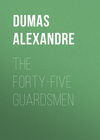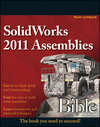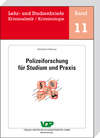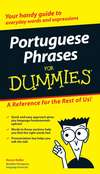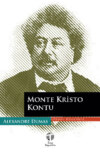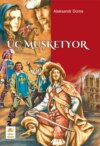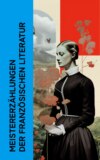Kitabı oku: «The Forty-Five Guardsmen», sayfa 29
CHAPTER LXXXII.
THE HUSBAND AND THE LOVER
It was with no inconsiderable emotion that Chicot again recognized La Rue des Augustins, so quiet and deserted, the angle formed by the block of houses which preceded his own, and lastly, his own dear house itself, with its triangular roof, its worm-eaten balcony, and its gutters ornamented with waterspouts.
He had been so terribly afraid that he should find nothing but an empty space in the place of the house, and had so strongly suspected that he should see the street blackened by the smoke of a conflagration, that the street and the house appeared to him miracles of neatness, loveliness, and splendor.
Chicot had concealed the key of his beloved house in the hollow of a stone which served as the base of one of the columns by which his balcony was supported. At the period we are now writing about, any kind of key belonging to a chest or piece of furniture equaled in weight and size the very largest keys of our houses of the present day; the door keys, therefore, following the natural proportions, were equal in size to the keys of our modern cities.
Chicot had consequently calculated the difficulty which his pocket would have in accommodating the heavy key, and he accordingly determined to hide it in the spot we have indicated.
Chicot, therefore, it must be confessed, felt a slight shudder creeping over him as he plunged his fingers in the hollow of the stone; this shudder was succeeded by a feeling of the most unmixed delight when the cold of the iron met his hand, for the key was really and truly in the spot where he had left it.
It was precisely the same with regard to the furniture in the first room he came to; the same, too, with the small board which he had nailed to the joist; and lastly, the same with the thousand crowns, which were still slumbering in their oaken hiding-place.
Chicot was not a miser; quite the contrary, indeed: he had very frequently thrown gold about broadcast, thereby allowing the ideal to triumph over the material, which is the philosophy of every man who is of any value; but no sooner had the mind momentarily ceased to exercise its influence over matter – in other words, whenever money was no longer needed, nor sacrifice requisite – whenever, in a word, the senses temporarily regained their influence over Chicot's mind, and whenever his mind allowed the body to live and to take enjoyment, gold, that principal, that unceasing, that eternal source of animal delights, reassumed its value in our philosopher's eyes, and no one knew better than he did into how many delicious particles that inestimable totality which people call a crown is subdivided.
"Ventre de biche!" murmured Chicot, sitting down in the middle of his room, after he had removed the flagstone, and with the small piece of board by his side, and his treasure under his eyes, "ventre de biche! that excellent young man is a most invaluable neighbor, for he has made others respect my money, and has himself respected it too; in sober truth, such an action is wonderful in such times as the present. Mordieux! I owe some thanks to that excellent young fellow, and he shall have them this evening."
Thereupon Chicot replaced the plank over the joist, the flagstone over the plank, approached the window, and looked toward the opposite side of the street.
The house still retained that gray and somber aspect which the imagination bestows as their natural color upon buildings whose character it seems to know.
"It cannot yet be their time for retiring to rest," said Chicot; "and besides, those fellows, I am sure, are not very sound sleepers; so let us see."
He descended his staircase, crossed the road – forming, as he did so, his features into their most amiable and gracious expression – and knocked at his neighbor's door.
He remarked the creaking of the staircase, the sound of a hurried footstep, and yet he waited long enough to feel warranted in knocking again.
At this fresh summons the door opened, and the outline of a man appeared in the gloom.
"Thank you, and good-evening," said Chicot, holding out his hand; "here I am back again, and I am come to return you my thanks, my dear neighbor."
"I beg your pardon," inquiringly observed a voice, in a tone of disappointment, the accent of which greatly surprised Chicot.
At the same moment the man who had opened the door drew back a step or two.
"Stay, I have made a mistake," said Chicot, "you were not my neighbor when I left, and yet I know who you are."
"And I know you too," said the young man.
"You are Monsieur le Vicomte Ernanton de Carmainges."
"And you are 'The Shade.'"
"Really," said Chicot, "I am quite bewildered."
"Well, and what do you want, monsieur?" inquired the young man, somewhat churlishly.
"Excuse me, but I am interrupting you, perhaps, my dear monsieur?"
"No, only you will allow me to ask you what you may want."
"Nothing, except that I wished to speak to the master of this house."
"Speak, then."
"What do you mean?"
"I am the master of the house, that is all."
"You? since when, allow me to ask?"
"Diable! since the last three days."
"Good! the house was for sale then?"
"So it would seem, since I have bought it."
"But the former proprietor?"
"No longer lives here, as you see."
"Where is he?"
"I don't know."
"Come, come, let us understand each other," said Chicot.
"There is nothing I should like better," replied Ernanton, with visible impatience, "only let us do so without losing any time."
"The former proprietor was a man between five-and-twenty and thirty years of age, but who looked as if he were forty."
"No; he was a man of about sixty-five or sixty-six years old, who looked his age quite."
"Bald?"
"No, on the contrary, a perfect forest of white hair."
"With an enormous scar on the left side of the head, had he not?"
"I did not observe the scar, but I did a good number of furrows."
"I cannot understand it at all," said Chicot.
"Well," resumed Ernanton, after a moment's silence, "what did you want with that man, my dear Monsieur l'Ombre?"
Chicot was on the point of acknowledging what had just happened; suddenly, however, the mystery of the surprise which Ernanton had exhibited, reminded him of a certain proverb very dear to all discreet people.
"I wished to pay him a neighborly visit," he said, "that is all."
In this way, Chicot did not tell a falsehood, and yet admitted nothing.
"My dear monsieur," said Ernanton politely, but reducing considerably the opening of the door which he held half-closed, "I regret I am unable to give you more precise information."
"Thank you, monsieur," said Chicot, "I must look elsewhere, then."
"But," continued Ernanton, as he gradually closed the door, "that does not interfere with my congratulating myself upon the chance which has brought me again into personal communication with you."
"You would like to see me at the devil, I believe," murmured Chicot, as he returned bow for bow.
However, as, notwithstanding this mental reply, Chicot, in his preoccupation, forgot to withdraw, Ernanton, shutting his face between the door and the doorway, said to him:
"I wish you a very good-evening, monsieur." – "One moment, Monsieur de Carmainges," said Chicot.
"Monsieur, I exceedingly regret I am unable to wait," replied Ernanton, "but the fact is, I am expecting some one who will come and knock at this very door, and this person will be angry with me if I do not show the greatest possible discretion in receiving him."
"That is quite sufficient, monsieur, I understand," said Chicot; "I am sorry to have been so importunate, and I now retire." – "Adieu, dear Monsieur l'Ombre."
"Adieu, excellent Monsieur Ernanton."
And as Chicot drew back a step, he saw the door quietly shut in his face.
He listened to satisfy himself if the suspicious young man was watching his departure, but he heard Ernanton's footsteps as he ascended the staircase; Chicot could therefore return to his own house without uneasiness, and shut himself up in it, thoroughly determined not to interfere with his new neighbor's habits, but, in accordance with his usual custom, equally resolved not to lose sight of him altogether.
In fact, Chicot was not a man to slumber on a circumstance which, in his opinion, seemed to be important, without having handled and dissected it, with the patience of a first-rate anatomist; in spite of all he could do (and it was a privilege or defect of his organization), every material impression that his mind received presented itself for analysis, by its most prominent features, in such a manner that poor Chicot's brain suffered considerably on account of such peculiarity, called upon as it was for an immediate investigation of its master's thought.
Chicot, whose mind up to that moment had been occupied with that phrase of the Duc de Guise's letter, namely, "I entirely approve of your plan with regard to the Forty-five," consequently abandoned that phrase, the examination of which he promised himself to return to at a later period, in order that he might forthwith thoroughly exhaust this fresh subject of preoccupation, which had just taken the place of the older one.
Chicot reflected, that nothing could possibly be more singular than the fact of Ernanton installing himself, as if he were its master, in that mysterious house whose inhabitants had suddenly disappeared.
And the more so, since to these original inhabitants a phrase of the Duc de Guise's letter relative to the Duc d'Anjou might possibly have some reference.
That was a chance which deserved attentive consideration, and Chicot was in the habit of believing in providential chances.
He developed, even, whenever he was begged to do so, some very ingenious theories on the subject.
The basis of these theories was an idea, which, in our opinion, was quite as good as any other; it was as follows:
Chance is a kind of reserve held in bond by the Deity. Heaven never communicates that reserve except in momentous circumstances, particularly since He has observed that men are sagacious enough to study and foresee the chances which may befall them in accordance with natural causes and regularly organized principles of existence.
Moreover, Heaven likes to counteract the combinations of those proud members of the human race whose pride in by-gone times He has already punished by drowning them, and whose future pride He surely will punish in destroying them by fire.
Heaven, therefore we say, or Chicot said, Heaven is pleased to counteract the combinations of those proud and haughty human beings by means with which they are unacquainted, and whose intervention they cannot foresee.
This theory, as may be perceived, includes some very specious arguments, and might possibly furnish some very brilliant theses; but the reader, anxious, as Chicot was, to know what Carmainges' object was in that house, will feel obliged to us by tracing the development of them.
Chicot, accordingly, began to think, that it was strange to see Ernanton in the very house where he bad seen Remy.
He considered it was strange for two reasons; the first, because of the perfect ignorance in which the two men lived with respect to each other, which led to the supposition that there must have been an intermediary between them unknown to Chicot; and the second reason, because the house must have been sold to Ernanton, who possessed no means of purchasing it.
"It is true," said Chicot, as he installed himself as comfortably as he could on his gutter, which was his usual place of observation; "it is true that the young man pretends he is expecting a visit, and that the visit is from a lady; in these days, ladies are wealthy, and allow themselves an indulgence in fancies of all kinds. Ernanton is handsome, young, and graceful; Ernanton has taken some one's fancy, a rendezvous has been arranged, and he has been directed to purchase this house; he has bought the house, and she has accepted the rendezvous.
"Ernanton," continued Chicot, "lives at court; it must be some lady belonging to the court, then, with whom he has this affair. Poor fellow, will he love her? Heaven preserve him from such a thing! he is going to fall headlong into that gulf of perdition. Very good! ought I not to read him a moral lecture thereupon?
"A moral lecture, which would be both useless and absurd, doubly so the former, and tenfold the latter.
"Useless, because he won't understand it, and, even if he did understand it, would refuse to listen to it.
"Absurd, because I should be doing far better to go to bed, and to think a little about that poor Borromée.
"On this latter subject," continued Chicot, who had suddenly become thoughtful, "I perceive one thing; namely, that remorse does not exist, and is only a relative feeling; the fact is, I do not feel any remorse at all for having killed Borromée, since the manner in which Monsieur de Carmainges' affair occupies my mind makes me forget that I have killed the man; and if he, on his side, had nailed me to the table as I nailed him to the wainscot, he would certainly have had no more remorse than I have about it myself, at the present moment."
Chicot had reached so far in his reasonings, his inductions, and his philosophy, which had consumed a good hour and a half altogether, when he was drawn from his train of thought by the arrival of a litter proceeding from the direction of the inn of the "Brave Chevalier."
This litter stopped at the threshold of the mysterious house.
A veiled lady alighted from it, and disappeared within the door which Ernanton held half open.
"Poor fellow!" murmured Chicot, "I was not mistaken; and it was indeed a lady he was waiting for, and so now I shall go to bed."
Whereupon Chicot rose, but remained motionless, although standing up.
"I am mistaken," he said, "I shall not be able to go to sleep; but I maintain what I was saying, that if I don't sleep it will not be remorse which will prevent me, it will be curiosity; and that is so true what I say in that respect, that if I remain here in my observatory, my mind will only be occupied about one thing, and that is to learn which of our noble ladies honors the handsome Ernanton with her affection.
"Far better, then, to remain where I am; since, if I went to bed, I should certainly get up again to return here."
And thereupon Chicot resumed his seat.
An hour had nearly passed away without our being able to state whether Chicot was engaged in thinking of the unknown lady or Borromée, or whether he was occupied by curiosity or tormented by feelings of remorse, when he fancied he heard the gallop of a horse at the end of the street.
Such was indeed the case, for soon after a cavalier, wrapped in his cloak, made his appearance.
The cavalier drew up in the middle of the street, and seemed to be looking about him to see where he was.
The cavalier then perceived the group which was formed by the litter and its bearers.
He drove his horse against them. He was armed, for the rattling of his sword against his spurs could be distinctly heard.
The bearers of the litter seemed desirous of barring his passage, but he addressed a few words to them in a low tone of voice, and not only did they withdraw with every mark of respect, but one of them, as he sprang to the ground from his horse, even received the bridle from his hand. The unknown advanced toward the door and knocked loudly.
"Well," said Chicot, "I was right in remaining, after all; my presentiments, which told me that something was going to take place, have not deceived me. Here is the husband, poor Ernanton; we shall presently be witness of something serious.
"If, however, it be the husband he is very kind to announce his return in so riotous a manner."
Notwithstanding the magisterial manner in which the unknown thundered at the door, some hesitation seemed to be shown in opening it.
"Open!" cried he who was knocking.
"Open! open!" repeated the bearers.
"There is no doubt it is the husband," resumed Chicot; "he has threatened the men that he will have them whipped or hanged, and they have declared themselves on his side.
"Poor Ernanton, he will be flayed alive.
"Oh! oh! I shall not suffer such a thing, however," added Chicot.
"For in fact," he resumed, "he assisted me; and consequently, when an opportunity presents itself, I ought to help him. And it seems to me that the opportunity has now arrived, or it never will do so."
Chicot was resolute and generous, and curious into the bargain; he unfastened his long sword, placed it under his arm, and hurriedly ran down the staircase.
He could open his door noiselessly, which is an indispensable piece of knowledge for any one who may wish to listen with advantage.
Chicot glided under the balcony, then behind a pillar, and waited.
Hardly had he installed himself there, when the door opposite was opened immediately the unknown had whispered a word through the keyhole, and yet he did not venture beyond the threshold.
A moment afterward the lady appeared within the doorway.
She took hold of the cavalier's arm, who led her to the litter, closed the door of it, and then mounted his horse.
"There is no doubt on the subject," said Chicot, "it is the husband, a good-natured fellow of a husband after all, since he does not think it worth his while to explore the house in order to be revenged on my friend Carmainges."
The litter then moved off, the cavalier walking his horse beside the door of it.
"Pardieu!" said Chicot, "I must follow those people and learn who they are, and where they are going; I shall at all events draw some solid counsel from my discovery for my friend Carmainges."
Chicot accordingly followed the cortege, observing the precaution, however, of keeping in the shadow of the walls, and taking care that the noise made by the footsteps of the men and of the horses should render the sound of his own inaudible.
Chicot's surprise was by no means slight when he saw the litter stop at the door of the "Brave Chevalier."
Almost immediately afterward, as if some one had been on the watch, the door was opened.
The lady, still veiled, alighted; entered and mounted to the turret, the window of the first story of which was lighted.
The husband followed her, both being respectfully preceded by Dame Fournichon, who carried a flambeau in her hand.
"Decidedly," said Chicot, crossing his arms on his chest, "I cannot understand a single thing of the whole affair."
CHAPTER LXXXIII.
SHOWING HOW CHICOT BEGAN TO UNDERSTAND THE PURPORT OF MONSIEUR DE GUISE'S LETTER
Chicot fancied that he had already certainly seen, somewhere or another, the figure of this courteous cavalier; but his memory, having become a little confused during his journey from Navarre, where he had met with so many different figures, did not, with its usual facility, furnish him with the cavalier's name on the present occasion.
While, concealed in the shade, he was interrogating himself, with his eyes fixed upon the lighted window, as to the object of this lady and gentleman's tete-à-tete at the "Brave Chevalier," our worthy Gascon, forgetting Ernanton in the mysterious house, observed the door of the hostelry open, and in the stream of light which escaped through the opening, he perceived something resembling the dark outline of a monk's figure.
The outline in question paused for a moment to look up at the same window at which Chicot had been gazing.
"Oh! oh!" he murmured; "if I am not mistaken, that is the frock of a Jacobin friar. Is Maitre Gorenflot so lax, then, in his discipline as to allow his sheep to go strolling about at such an hour of the night as this, and at such a distance from the priory?"
Chicot kept his eye upon the Jacobin, who was making his way along the Rue des Augustins, and something seemed instinctively to assure him that he should, through this monk, discover the solution of the problem which he had up to that moment been vainly endeavoring to ascertain.
Moreover, in the same way that Chicot had fancied he had recognized the figure of the cavalier, he now fancied he could recognize in the monk a certain movement of the shoulder, and a peculiar military movement of the hips, which only belong to persons in the habit of frequenting fencing-rooms and gymnastic establishments.
"May the devil seize me," he murmured, "if that frock yonder does not cover the body of that little miscreant whom I wished them to give me for a traveling companion, and who handles his arquebuse and sword so cleverly."
Hardly had the idea occurred to Chicot, when, to convince himself of its value, he stretched out his long legs, and in a dozen strides rejoined the little fellow, who was walking along holding up his frock above his thin and sinewy legs in order to be able to get along all the faster.
This was not very difficult, however, inasmuch as the monk paused every now and then to glance behind him, as if he was going away with great difficulty and with feelings of profound regret.
His glance was invariably directed toward the brilliantly-lighted windows of the hostelry.
Chicot had not gone many steps before he felt sure that he had not been mistaken in his conjectures.
"Hallo! my little master," he said; "hallo! my little Jacquot; hallo! my little Clement. Halt!"
And he pronounced this last word in so thoroughly military a tone, that the monk started at it.
"Who calls me?" inquired the young man rudely, with something rather antagonistic than cordial in his tone of voice.
"I!" replied Chicot, drawing himself up in front of the monk; "I! don't you recognize me?"
"Oh! Monsieur Robert Briquet!" exclaimed the monk.
"Myself, my little man. And where are you going like that, so late, darling child?"
"To the priory, Monsieur Briquet."
"Very good; but where do you come from?"
"I?"
"Of course, little libertine."
The young man started.
"I don't know what you are saying, Monsieur Briquet," he replied; "on the contrary, I have been sent with a very important commission by Dom Modeste, who will himself assure you that such is the case, if there be any occasion for it."
"Gently, gently, my little Saint Jerome; we take fire like a match, it seems."
"And not without reason, too, when one hears such things said as you were saying just now."
"Diable! when one sees a frock like yours leaving a tavern at such an hour – "
"A tavern, I!"
"Oh! of course not; the house you left just now was not the 'Brave Chevalier,' I suppose? Ah! you see I have caught you!"
"You were right in saying that I left that house, but it was not a tavern I was leaving."
"What!" said Chicot; "is not the hostelry of the sign of the 'Brave Chevalier' a tavern?"
"A tavern is a house where people drink, and as I have not been drinking in that house, that house is not a tavern for me."
"Diable! that is a subtle distinction, and I am very much mistaken if you will not some day become a very forcible theologian; but, at all events, if you did not go into that house to drink there, what did you go there for?"
Clement made no reply, and Chicot could read in his face, notwithstanding the darkness of the night, a resolute determination not to say another word.
This resolution annoyed our friend extremely, for it had almost grown a habit with him to become acquainted with everything.
It must not be supposed that Clement showed any ill-feeling in his silence; for, on the contrary, he had appeared delighted to meet, in so unexpected a manner, his learned fencing-master, Maitre Robert Briquet, and had given him the warmest reception that could be expected from the close and rugged character of the youth.
The conversation had completely ceased. Chicot, for the purpose of starting it again, was on the point of pronouncing the name of Frere Borromée; but, although Chicot did not feel any remorse, or fancied he did not feel any, he could not summon up courage to pronounce that name.
His young companion, still preserving the same unbroken silence, seemed as if he were awaiting something; it seemed, too, as if he considered it a happiness to remain as long as possible in the neighborhood of the hostelry of the "Brave Chevalier."
Robert Briquet tried to speak to him about the journey which the boy had for a moment entertained the hope of making with him.
Jacques Clement's eyes glistened at the words space and liberty.
Robert Briquet told him that in the countries through which he had just been traveling, the art of fencing was held greatly in honor; he added, with an appearance of indifference, that he had even brought away with him several wonderful passes and thrusts.
This was placing Jacques upon slippery ground. He wished to know what these passes were; and Chicot, with his long arm, indicated a few of them upon the little monk's arm.
But all these delicacies and refinements on Chicot's part in no way affected little Clement's obstinate determination; and while he endeavored to parry these unknown passes, which his friend Maitre Robert Briquet was showing him, he preserved an obstinate silence with respect to what had brought him into that quarter.
Thoroughly annoyed, but keeping a strong control over himself, Chicot resolved to try the effect of injustice; injustice is one of the most powerful provocatives ever invented to make women, children, and inferiors speak, whatever their nature or disposition may be.
"It does not matter," he said, as if he returned to his original idea; "it does not matter, you are a delightful little monk; but that you visit hostelries is certain, and what hostelries too! Those where beautiful ladies are to be found, and you stop outside in a state of ecstasy before the window, where you can see their shadow. Oh! little one, little one, I shall tell Dom Modeste all about it."
The bolt hit its mark, more truly so even than Chicot had supposed; for when he began, he did not suspect that the wound had been so deep.
Jacques turned round like a serpent that had been trodden on.
"That is not true," he cried, crimson with shame and anger, "I don't look at women."
"Yes, yes," pursued Chicot; "on the contrary, there was an exceedingly pretty woman at the 'Brave Chevalier' when you left it, and you turned round to look at her again; and I know that you were waiting for her in the turret, and I know, too, that you spoke to her."
Chicot proceeded by the inductive process.
Jacques could not contain himself any longer.
"I certainty have spoken to her!" he exclaimed; "is it a sin to speak to women?"
"No, when one does not speak to them of one's own accord, and yielding to the temptation of Satan."
"Satan has nothing whatever to do with the matter; it was absolutely necessary that I should speak to that lady, since I was desired to hand her a letter."
"Desired by Dom Modeste!" cried Chicot.
"Yes, go and complain to him now, if you like."
Chicot, bewildered, and feeling his way as it were in the dark, perceived, at these words, a gleam of light traversing the obscurity of his brain.
"Ah!" he said, "I knew it perfectly well."
"What did you know?"
"What you did not wish to tell me."
"I do not tell my own secrets, and, for a greater reason, the secrets of others."
"Yes, but to me."
"Why should I to you?"
"You should tell them to me because I am a friend of Dom Modeste, and, for another reason, you should tell them to me because – "
"Well?"
"Because I know beforehand all you could possibly have to tell me."
Jacques looked at Chicot and shook his head with an incredulous smile.
"Very good!" said Chicot, "would you like me to tell you what you do not wish to tell me?"
"I should indeed."
Chicot made an effort.
"In the first place," he said, "that poor Borromée – "
A dark expression passed across Jacques' face.
"Oh!" said the boy, "if I had been there – "
"Well! if you had been there?"
"The affair would not have turned out as it did."
"Would you have defended him against the Swiss with whom he got into a quarrel?"
"I would have defended him against every one."
"So that he would not have been killed?"
"Either that, or I should have got myself killed along with him."
"At all events, you were not there, so that the poor devil breathed his last in an obscure tavern, and in doing so pronounced Dom Modeste's name; is not that so?"
"Yes."
"Whereupon the people there informed Dom Modeste of it?"
"A man, seemingly scared out of his wits, who threw the whole convent into consternation."
"And Dom Modeste sent for his litter, and hastened to 'La Corne d'Abondance.'"
"How do you know that?"
"Oh! you don't know me yet, my boy; I am somewhat of a sorcerer, I can tell you."
Jacques drew back a couple of steps.
"That is not all," continued Chicot, who, as he spoke, began to see clearer by the light of his own words; "a letter was found in the dead man's pocket."
"A letter – yes, precisely so."
"And Dom Modeste charged his little Jacques to carry that letter to its address."
"Yes."
"And the little Jacques ran immediately to the Hotel de Guise."
"Oh!"
"Where he found no one."
"Bon Dieu!"
"But Monsieur de Mayneville."
"Good gracious!"
"And which same Monsieur de Mayneville conducted Jacques to the hostelry of the 'Brave Chevalier.'"
"Monsieur Briquet! Monsieur Briquet!" cried Jacques, "if you know that – "
"Eh! ventre de biche! you see very well that I do know it," exclaimed Chicot, feeling triumphant at having disentangled this secret, which was of such importance for him to learn, from the provoking intricacies in which it had been at first involved.
"In that case," returned Jacques, "you see very well, Monsieur Briquet, that I am not guilty."
"No," said Chicot, "you are not guilty in act, nor in omission, but you are guilty in thought."
"I!"
"I suppose there is no doubt you think the duchesse very beautiful?"
"I!!"
"And you turned round to look at her again through the window."
"I!!!"
The young monk colored and stammered out: "Well, it is true, she is exactly like a Virgin Mary which was placed over the head of my mother's bed."
"Oh!" muttered Chicot, "how much those people lose who are not curious!"
And thereupon he made little Clement, whom from this moment he held in his power, tell him all he had himself just told him, but this time with the details, which he could not possibly otherwise have known.
